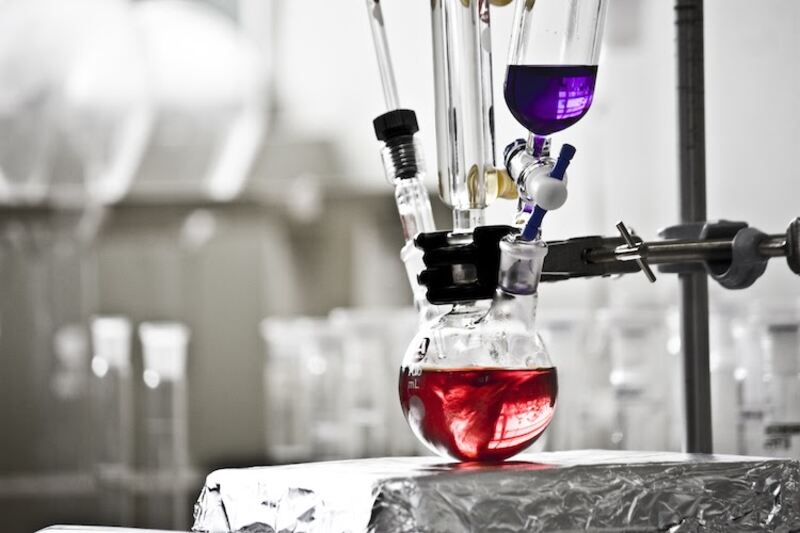Organic synthesis is the cornerstone of modern chemistry, enabling the construction of complex molecules from simpler ones. These laboratory experiments are essential not only for advancing scientific knowledge but also for applications in pharmaceuticals, materials science, and agrochemicals. This essay explores the fundamental aspects of organic synthesis laboratory experiments, focusing on their objectives, methodologies, challenges, and the importance of safety and precision – roland.
Objectives of Organic Synthesis Laboratory Experiments
The primary goal of organic synthesis laboratory experiments is to design and execute chemical reactions that yield specific organic compounds. These experiments allow chemists to explore reaction mechanisms, develop new synthetic routes, and optimize existing methods.
1. Development of New Reactions: Organic synthesis labs are often tasked with discovering novel reactions or improving existing ones. This involves experimenting with different catalysts, reagents, and conditions to achieve higher yields or selectivity.
2. Synthesis of Target Molecules: Whether for drug development, material science, or academic research, the synthesis of target molecules with specific properties is a common objective. For instance, synthesizing a new pharmaceutical compound may require constructing a complex molecular framework with precise stereochemistry.
3. Study of Reaction Mechanisms: Understanding how and why a reaction occurs is crucial for developing new synthetic strategies. Mechanistic studies often involve monitoring intermediates, analyzing reaction kinetics, and using spectroscopic techniques to elucidate the pathway from reactants to products.
4. Optimization of Reaction Conditions: Achieving the highest yield and purity often requires fine-tuning various reaction parameters, such as temperature, solvent, and reagent concentration. This optimization process is critical for scaling up reactions from the laboratory to industrial production.
Methodologies in Organic Synthesis Laboratory Experiments
The methodologies employed in organic synthesis laboratories are diverse and depend on the specific objectives of the experiment. However, some common techniques and practices are universally applied:
1. Reaction Setup: A typical organic synthesis experiment begins with the careful setup of the reaction. This includes selecting appropriate glassware, reagents, and solvents. The reaction flask is often equipped with a stirring mechanism, temperature control, and an inert atmosphere (usually nitrogen or argon) to prevent unwanted side reactions.
2. Monitoring and Control: Reactions are monitored using various techniques such as thin-layer chromatography (TLC), gas chromatography (GC), or nuclear magnetic resonance (NMR) spectroscopy. These tools help chemists track the progress of the reaction and identify when it is complete. Control experiments, where one or more variables are altered, are also conducted to determine the optimal conditions.
3. Workup and Purification: After the reaction is complete, the mixture is subjected to a workup process to isolate the desired product. This typically involves quenching the reaction, separating phases (if applicable), and removing impurities through techniques like extraction, recrystallization, or column chromatography.
4. Characterization of Products: The final product is characterized using spectroscopic methods such as NMR, infrared (IR) spectroscopy, and mass spectrometry (MS). These techniques confirm the structure and purity of the synthesized compound, ensuring that the experiment’s objectives have been met.
5. Documentation and Analysis: Detailed documentation of procedures, observations, and results is crucial. This data is used to analyze the efficiency of the reaction, compare it with existing methods, and guide future experiments.
Challenges in Organic Synthesis Laboratory Experiments
Organic synthesis experiments are often fraught with challenges that require careful planning and problem-solving skills. Some of the common challenges include:
1. Reaction Yield: Achieving high yields is a significant challenge, especially for complex reactions. Side reactions, incomplete conversions, and loss during purification can all reduce the final yield.
2. Selectivity: In many cases, multiple products can form during a reaction. Controlling the selectivity to obtain the desired product with minimal by-products is crucial, particularly in pharmaceutical synthesis where purity is paramount.
3. Scalability: Reactions that work well on a small scale in the laboratory may not scale up efficiently for industrial production. Factors such as heat transfer, mixing efficiency, and reagent availability must be considered during scale-up.
4. Safety Concerns: Organic synthesis often involves hazardous chemicals and conditions, such as flammable solvents, toxic reagents, and high temperatures. Ensuring the safety of personnel and equipment is a critical concern that requires strict adherence to safety protocols.
Importance of Safety and Precision
Safety and precision are the bedrock of any successful organic synthesis experiment. The handling of chemicals and the execution of reactions must be done with the utmost care to avoid accidents and ensure reproducible results. This involves:
1. Personal Protective Equipment (PPE): Lab personnel must wear appropriate PPE, including gloves, goggles, and lab coats. In some cases, more specialized equipment, such as respirators, may be required.
2. Proper Waste Disposal: Organic synthesis generates hazardous waste, which must be disposed of according to regulatory guidelines. This includes proper labeling, segregation of waste types, and using designated disposal facilities.
3. Accurate Measurements: Precision in measuring reagents, controlling temperature, and timing reactions is essential for reproducibility. Small errors can lead to significant variations in yield, purity, and reaction outcome.
4. Training and Supervision: Adequate training for all laboratory personnel is vital. Experienced supervisors should oversee critical steps in the experiment to ensure that protocols are followed correctly.
Conclusion
Organic synthesis laboratory experiments are a vital part of chemical research and development, enabling the creation of new compounds and the exploration of reaction mechanisms – lemari asam. The methodologies employed are diverse, requiring a combination of technical skill, creativity, and attention to detail. Despite the challenges, such as achieving high yield and selectivity, these experiments contribute significantly to advances in various fields, including medicine and materials science. Above all, the emphasis on safety and precision ensures that these experiments are conducted effectively and responsibly, laying the groundwork for future innovations in chemistry.




